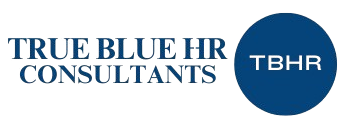
Artificial Intelligence (AI) is transforming industries across the globe, and Human Resources (HR) is no exception. From automating repetitive tasks to personalizing employee experiences, AI has the potential to redefine how organizations manage their workforce. However, this transformation also brings challenges, especially the need to balance technology with the human touch.
As organizations navigate this shift, understanding the impact of AI on HR processes is crucial. In this article, we examine how AI is reshaping HR functions like recruitment, employee engagement, and process automation, while exploring the critical role of HR consultants in ensuring technology complements—not replaces—the human element.
AI in Automating HR Processes
One of the most visible impacts of AI in HR is the automation of routine and time-consuming tasks. A Deloitte study estimates that 56% of organizations are using AI to automate processes like payroll, employee record management, and compliance tracking.
Key Benefits
- Efficiency Gains: AI-powered tools like Robotic Process Automation (RPA) can handle repetitive tasks with near-zero error rates, saving time and resources. For instance, AI can process hundreds of employee onboarding documents in minutes.
- Cost Reduction: McKinsey predicts that automating HR processes can reduce operational costs by up to 30%.
- Improved Accuracy: AI minimizes human errors in tasks like benefits administration and tax compliance.
While automation enhances efficiency, organizations must ensure that technology serves as an enabler, not a barrier, to meaningful human interactions.
AI in Recruitment: Revolutionizing Talent Acquisition
Recruitment is one of the areas where AI has had the most profound impact. From screening resumes to analyzing candidate behavior, AI-driven tools are streamlining the hiring process.
How AI Improves Recruitment
- Resume Screening: AI-powered Applicant Tracking Systems (ATS) can scan thousands of resumes in seconds, identifying candidates who best match job requirements.
- Bias Mitigation: AI algorithms can be designed to eliminate unconscious bias, ensuring diversity in hiring. However, this requires careful monitoring to avoid replicating existing biases in the data.
- Predictive Analytics: By analyzing historical hiring data, AI can predict which candidates are likely to succeed in specific roles.
Statistics That Matter
- Companies using AI in recruitment report a 35% reduction in time-to-hire, according to a LinkedIn study.
- Organizations leveraging AI-driven sourcing tools see a 25% increase in candidate quality.
Despite these advantages, the need for a personal touch remains paramount. Candidates value human connections during interviews and onboarding, aspects that AI cannot replicate.
Enhancing Employee Engagement with AI
Employee engagement is vital for productivity and retention. According to Gallup, organizations with highly engaged employees are 21% more profitable. AI is helping HR teams enhance engagement by providing data-driven insights and personalized solutions.
AI-Driven Engagement Strategies
- Sentiment Analysis: AI can analyze employee feedback from surveys, emails, and chats to gauge morale and identify areas of concern.
- Personalized Learning: AI-powered learning platforms recommend courses and training programs tailored to individual career goals.
- Chatbots for Support: AI chatbots, such as those used for HR FAQs or mental health resources, ensure employees get timely assistance.
The Human Element
While AI can provide insights, interpreting them and taking meaningful action requires human intuition and empathy. HR consultants often play a pivotal role in bridging this gap, ensuring that technology-driven insights are translated into impactful engagement strategies.
Challenges in Adopting AI in HR
Despite its benefits, implementing AI in HR is not without challenges.
- Data Privacy Concerns: Handling sensitive employee data requires robust security measures to prevent breaches.
- Bias in Algorithms: AI systems are only as unbiased as the data they are trained on. Missteps in data curation can perpetuate or exacerbate inequalities.
- Employee Trust: Over-reliance on AI can lead to employees feeling monitored or undervalued.
To address these challenges, organizations need a thoughtful approach that emphasizes transparency, ethics, and communication.
Are We Ready for the Change?
AI adoption in HR is accelerating, but readiness varies across industries and organizations. A PwC survey found that while 63% of companies plan to use AI in HR within the next three years, only 33% feel confident about their ability to integrate AI effectively.
Steps to Enhance Readiness
- Invest in Training: Equip HR teams with the skills needed to work alongside AI tools.
- Adopt a Phased Approach: Begin with small-scale implementations before scaling up.
- Partner with Experts: Collaborating with HR consultants can help organizations navigate the complexities of AI adoption.
The Human Touch: Where True Blue HR Consultants Make a Difference
As AI reshapes the HR landscape, the human touch remains irreplaceable. True Blue HR Consultants understand the importance of blending technological innovation with human-centered practices.
Our Role in the AI-HR Integration
- Strategic Guidance: We help organizations identify which AI solutions align with their unique goals and culture.
- Bias Mitigation: Our consultants ensure AI implementations are ethical and promote diversity.
- Focus on Employee Experience: By interpreting AI-driven insights, we design strategies that enhance engagement while preserving the human element.
Our expertise spans recruitment for mid-level and senior roles, leadership development, and employee engagement strategies, enabling businesses to harness AI while staying grounded in human connections.
The Road Ahead
AI is not the future of HR—it is the present. By automating processes, enhancing recruitment, and improving engagement, AI offers immense potential for HR transformation. However, its success hinges on thoughtful implementation that prioritizes employee well-being and organizational values.
Organizations that embrace AI while maintaining a strong human focus will be best positioned to thrive in the evolving workplace landscape. With the right strategies and expert guidance, the shift to AI-enhanced HR can lead to unparalleled growth and innovation.
True Blue HR Consultants stand ready to support organizations in navigating this transformation, ensuring that technology and humanity work hand in hand for a brighter future.
Related Posts
Why Have a Team If You’re Going to Micromanage?
A team exists to share the workload and make the most of everyone’s unique strengths.…
Future of Work: How HR Can Adapt to the Rise of Remote and Hybrid Models
The world of work has changed dramatically in recent years, with the rise of remote…
5 Key Strategies to Attract and Retain Top Talent in 2024
The talent market is becoming increasingly competitive, especially as businesses evolve to meet the challenges…
Navigating Generational Shifts in the Organizational Workplace
In today’s dynamic work environment, organizations are witnessing a significant generational shift in the workplace.…









